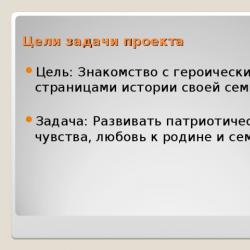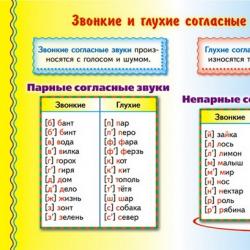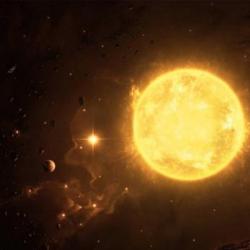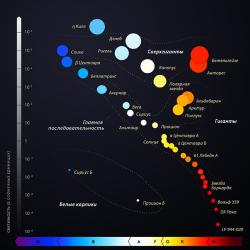The project is my great-grandfather, defender of the homeland. My great-grandfather is the defender of the fatherland. Project progress
Prepared by 4th grade student: Arina Monich
Key supervisor: Denitsa N.A.

Project task goals
- Goal: Getting to know the heroic pages of your family’s history
- Objective: To develop patriotic feelings, love for the homeland and family.

Gregory
Grigorievich

Biography.
My great-grandfather Grigory Grigorievich Kaplya was born in 1925. At the time when our Motherland was attacked by the Nazi invaders, he was barely 16 years old. He immediately went to sign up as volunteers with his brother Anton. His older brother was taken to the front, and his great-grandfather joined the partisans.

stories
- In 1941, Nazi troops attacked Russia.
- Belarus also decided to prepare for an attack by enemies, and if they don’t attack, then they will help us. My great-grandfather joined the partisans. He spent 2 years as a partisan in the Belarusian forests. His father, my great-great-grandfather, worked in a store, when the enemies attacked, my great-great-grandfather entered into their trust. They kept their weapons “grenades, pistols, cartridges” in his store.



Partisan movement in Belarus
- In Belarus, partisan struggle in the rear of the Nazi invaders began to unfold from the first days of the war and took on a nationwide character.
- By mid-August 1941, 231 partisan detachments were operating on the territory of Belarus, numbering over 12 thousand people.
- In November 1942, there were 430 partisan units numbering about 50 thousand fighters, by May 1943 there were 548 partisan units, in which over 75 thousand people fought.

The partisan movement successfully carried out offensive operations. Large fascist garrisons were destroyed, raids were carried out on railway stations, and bridgeheads were captured.
The partisans actively participated in major operations on enemy communications - “Rail War” and “Concert”.
An effective form of struggle was partisan raids.
Partisans were active during the Belarusian operation of 1944. During its implementation, most of the reserves of the fascist German armies “Center” were constrained by the fight against partisans.
The partisans assisted Soviet troops in crossing rivers, acted as tank landing forces, and participated in the liberation of Minsk, Slutsk, Borisov, Mogilev, Klichev, Pinsk and other cities.

What do the numbers say?
- During the entire period of the occupation of Belarus, 440,000 people took part in the partisan movement
- Over 500,000 Nazi occupiers were killed, wounded, or captured
- The people's avengers blew up 11,128 enemy trains, 34 armored trains, destroyed 29 railway stations, 948 headquarters
- They destroyed 18,700 vehicles, 1,355 tanks and armored vehicles, 305 aircraft, and blew up 939 ammunition depots.
- For their accomplished feats, 87 patriots were awarded the title of Hero of the Soviet Union, 120,000 were awarded military orders and medals.
Svetlana Marinina
Project “My Grandfather Defended the Motherland”
Target:
find out about the fate of my great-grandfather, a WWII participant
Tasks:
1. Find out about the war years of my great-grandfather.
2. Arouse the desire of friends to learn and talk about their relatives who participated in the Second World War
3. Create a book of memory about relatives who defended our Motherland during the war.
Work plan:
1. View photos about the war.
2. Conversation with great-grandfather about the Second World War.
3. Visit to the museum of our village
4. Tell your friends about the war, about your great-grandfather.
5. Visit to the memorial
6. Learning poems and songs about war
7. Stories from friends about their relatives, defenders of the Fatherland.
8. Design of the “Book of Memory”.
Progress on the project:
One day I saw my great-grandfather Vladimir Mikhailovich Lachugin examining an old triangle, yellowed with time. I asked him what it was. He replied: “This is my letter from the front.”
I wanted to know more about my great-grandfather, a participant in the Great Patriotic War. Then the grandfather took out an album with old war photographs and talked about how he joined the army at the age of 17. He became a paratrooper, and during the war he fought on different fronts.
The first important battle was when crossing the Svir River. The river was very wide and deep, and on the other bank there were a lot of Germans. Great-grandfather was the first to land on the enemy shore on a wooden boat under fire from the Nazis, for which he received the first medal “For Courage.”
My great-grandfather fought until the end of the war. He met victory in Hungary.
Many years have passed, but my great-grandfather still visits the battle sites every year and meets with his friends.
My great-grandfather is an honored veteran of the Nizhny Novgorod region.
He and I visited the local history museum. He told me that from the first days of the war, the people of Pilny tried to do everything possible to defend their Motherland.
In the museum, I especially liked the exhibition of military weapons, a model of a tank and military uniforms. There I saw the same yellowed triangle that I had seen at my great-grandfather’s house. This was also a letter from the front.
When I came to kindergarten, I shared my impressions with my friends. They also became interested and then Natalya Viktorovna, our teacher, suggested that we go on an excursion to the memorial.
At the memorial, we observed a minute of silence in memory of the soldiers who died in the Second World War and laid flowers at the Eternal Flame.
Our kindergarten hosts celebrations dedicated to Victory Day, where children of the senior and preparatory groups dance, read poems, and sing songs. (song)
Natalya Viktorovna suggested creating a “Book of Memory” in our group. My friends began to bring photographs and stories to kindergarten about their relatives, participants in the Second World War.
My family and I are proud of our great-grandfather and want to be like him.
My dear grandfather,
We are all proud of you!
And I'll tell you a secret:
There is no better grandfather in the world!
I will always try
Look up to you in everything!
Project result:
1. I learned about where and how my great-grandfather fought.
2. After visiting the memorial, my friends had a great interest and desire to talk about their relatives who participated in the Second World War
3. Together with the teacher and the children of my group, we created a “Book of Memory”
Related publications:
"Grandfather". Grandfather didn’t take me in his arms, didn’t stroke my head, and didn’t tell me any fairy tales about Baba Yaga on a broom, he didn’t sing me heartfelt songs, no.
Short-term creative project “They fought for their homeland.” Short-term creative project “They fought for their Motherland” Prepared by teacher of the 1st qualification category: Shcheglova N.V. Project type:.
Short-term creative project “They fought for the Motherland!” 04/14/15 -05/14/15 Project basis: Currently, adults in conversations with their children rarely touch on the topic of the Great Patriotic War.
There is a lot to tell, but unfortunately many of those who lived and participated in the war are no longer alive. Here is my grandfather already.
Educational project: “There is such a profession as defending the Motherland” Educational project: “There is such a profession as defending the Motherland.” Project passport Type of project: information-practice-oriented. Target.
Project on patriotic education of children of senior preschool age: “To be president, you must love your homeland” Project on patriotic education of children of senior preschool age: “To be a president, you must love your Motherland” Goal: - Implement.
 On the eve of the 70th anniversary of Victory in the Great Patriotic War, I decided to make a wall newspaper “They defended the Motherland.” I asked my parents for this.
On the eve of the 70th anniversary of Victory in the Great Patriotic War, I decided to make a wall newspaper “They defended the Motherland.” I asked my parents for this.
Project goal: To collect information about the life and work of Nikifor Ivanovich Bolshakov during the Great Patriotic War and to find out what contribution he made to the common cause of approaching Victory Day over Nazi Germany. Objectives: 1. Study the literature about the Great Patriotic War.. 2. Ask relatives and friends about the fate of Nikifor Ivanovich Bolshakov. 3. Study the surviving documents of the great-grandfather. 4. Collect memories of fellow countrymen about Nikifor Ivanovich Bolshakov.



My great-grandfather, Bolshakov Nikifor Ivanovich, was born on June 15, 1912 in the village of Novoryamovo, Armizonsky district, Tyumen region. He did not have the opportunity to study at school, since his parents had a large family. Life was difficult, there were no basic necessities - shoes, clothes. Children began to work early and help their parents: they looked after livestock, weeded vegetable gardens, collected ears of corn in the fields, brought home drinking water from Lake Dunkino, etc.


When the time came to start a family himself, the great-grandfather found himself a worthy bride from the locals. His wife was Natalya Merkulyevna Pridchina, born in 1918. They lived amicably, they had six children: sons Alexander, Leonid, Vladimir, Nikolai, Mikhail and daughter Nina.





Since he was missing one eye, he did not take part in battles, but worked in the rear in the supply unit. Their unit delivered firewood and food to the soldiers, transported and loaded ammunition, and provided drinking water. After the end of the fighting, now in one area, now in another, they performed the most difficult, morally speaking, work: on the battlefields they collected and buried the dead. Helped with the dispatch and distribution of the wounded. So, following the active army, Nikifor Ivanovich reached Konigsberg.





List of government awards of Nikifor Ivanovich Bolshakov 1. Anniversary medal “20 years of Victory in the Great Patriotic War” (1965) 2. Anniversary medal “30 years of Victory in the Great Patriotic War” (1976) 3. Anniversary medal “40 years of Victory” in the Great Patriotic War" (1985) 4. Jubilee medal "50 years of Victory in the Great Patriotic War" (1994)

5. Order of the Patriotic War, second degree (1985) 6. Zhukov Medal (1996) years of the Armed Forces of the USSR (1969) years of the Armed Forces of the USSR (1979) years of the Armed Forces of the USSR (1988) 10. Memorable sign “50 years” liberation of Ukraine" (1996)

Lukyan Khachkinayan talks about Stepan Khugasovich Khachkinayan
Completed 24th regional literary and creative competition for readers of libraries in the Rostov region serving children, which is held annually by the Rostov Regional Children's Library named after V.M. Velichkina.
This year the competition was dedicated The 70th anniversary of Victory in the Great Patriotic War is called “Salute, Victory!”.
The results of the competition showed that more than 700 children from 150 libraries 34 municipalities Rostov region, represented by more than 800 creative works. (Regional holiday and competition results)
One of these works was the essay by Khachkinayan Lukyan (11 years old, village of Chaltyr, Myasnikovsky district, Rostov region) “War in the fate of my family,” illustrated with an electronic presentation. ()
“I am proud that I am the great-grandson of such a heroic person, a defender of the Fatherland, that I live in a country that won the Great Victory over Nazi Germany. I am grateful to my great-grandfather, a veteran of the Great Patriotic War. A low bow and many thanks to him for the fact that we now live in peace,” this is how Lukyan ends his essay.
The work received an incentive prize, Lukyan was awarded a diploma, which he was awarded on March 24 at the annual regional literary and creative festival.
Lukyan met his great-grandfather twice: the first time while studying family archives and preparing work for a competition, and the second time at a holiday, when he saw a photograph of his great-grandfather on the poster “Victory Day is their merit!” among the heroes of the creative works of other competition participants. Against the background of the Wall of Memory there are photographs of war participants, residents of the Rostov region, about whom the contestants wrote. In one of the photographs, Lukyan recognized his great-grandfather, Stepan Khugasovich Khachkinayan, who went through the entire war and ended it in Germany.
His grandmother rejoiced with Lukyan - Mariam Nikogosovna Khachkinayan, head of the children's library. Chaltyr, Myasnikovsky district, who told her grandson about the “Salute, Victory!” competition.
Khachkinayan Lukyan
The war of 1941-1945 is moving further and further away from us. And there are fewer and fewer participants and eyewitnesses of those terrible events. But the past cannot be forgotten, especially since the peaceful present was won at the cost of millions of lives given in the fight against the invaders. Our generation knows about the war only from books and from the stories of our grandfathers and great-grandfathers. The Great Patriotic War was a difficult test for our people.
It happened early on Sunday morning, June 22, 1941. The force and suddenness of the blow were such that neither the stamina and heroism of the soldiers, nor the military equipment could withstand the enemy onslaught in the first months of the war.
The country mobilized all its military might and people to defend the Fatherland. The soldiers did not spare their lives on the battlefields, crushed the enemy in the occupied territory, and worked in the rear day and night.
The older generation often remembers those harsh war years in our family and talks about the photographs that are stored in albums.
From my grandfather’s story, I know that my great-grandfather Stepan Khugasovich Khachkinayan went through the entire war and reached Germany. He was called up to the front on June 24, 1941, among the first mobilized soldiers and was sent to the city of Novocherkassk.
Here they were distributed according to the types of troops and along the fronts of the war. He ended up in the 423rd separate army linear communications battalion, which was staffed by almost 500 residents of our area. They received baptism of fire near Smolensk, where fierce battles took place. This unit in the army was unofficially called the “Armenian battalion”, since there were many of our fellow butchers in it. They stayed together and fought with dignity.
This battalion provided linear, that is, wired communications - telephone, telegraph. I had to pull the wires almost every day, or monitor their condition, to maintain the entire system in normal operating condition. And this is not easy; communication could be disrupted for a variety of reasons. It happened that wires were torn, poles fell from the explosions of shells and bombs. This was sometimes done by German saboteurs thrown into our rear. Anything has happened...
The requirements were strict and cruel. For example, each fighter dug 20-25 holes per day under the pillars, the depth of which should be at least 1-2 meters. The work was not walking, but running. The tasks were completed in seven to eight hours. This was considered a matter of honor. And so - throughout the war, day after day.
The military path of my great-grandfather was as follows: the battle of Moscow, the battle of the Oryol-Kursk Bulge, Operation Bagration on the Neman River, the liberation of the Baltic states, East Prussia - Koenigsberg.
He celebrated Victory Day in East Prussia, where he served until the end of 1945, restoring and establishing communications for civilians.
Stepan Khugasovich has military awards: medals “For Courage”, “For the Defense of Moscow”, “For the Capture of Koenigsberg”, “For Victory over Germany”, the “Excellence in Communications” badge and other medals for various anniversaries of the Victory.
I heard from stories that my great-grandfather never boasted about his awards, never wore them, but was very proud of them. After all, he performed feats and received well-deserved awards not for the sake of orders and medals, but for the sake of saving the Fatherland. He was shell-shocked several times. He was constantly tormented at night by terrible “war” dreams, from which he woke up in a cold sweat at night.
And now, among family heirlooms, we carefully preserve all his awards and photographs. I.Kh.’s congratulations were especially valuable to him. Bagramyan, which the famous marshal sent to the soldier on his 60th birthday on December 13, 1971.
After the war, for many years he worked as the director of the district store, an agent of the Myasnikovsky intercollective farm construction, and a weigher on the Myasnikyan collective farm.
He died in 1995 from a stroke.
I am proud that I am the great-grandson of such a heroic person, a defender of the Fatherland, that I live in a country that won the Great Victory over Nazi Germany. I am grateful to my great-grandfather, a veteran of the Great Patriotic War. Low bow and many thanks to him for the fact that we live in peace now.
My great-grandfather is the defender of the Fatherland!.
War... what a capacious and at the same time terrible word this is! It brings destruction and pain, suffering and anger, despair and loss, death. She, like a stroke of black paint, paints over everything: other colors, emotions, feelings, life... She comes suddenly, like a natural disaster, and when she leaves, she takes away her loved ones, leaving tears and sadness. This terrible war left a heavy mark on the fate of the Russian people. There is not a single family left that has not lost relatives. The war also affected my family.
My great-grandfather fought for 6 years, starting in December 1939, as a participant in the Soviet-Finnish War, and on June 23, 1941, he was drafted into the 10th Guards Division of the Karelian Front in the Murmansk direction. He reached Berlin itself, seeing all the horrors of war. Then for another year he participated in the restoration of Germany as commandant of one of the cities. He was wounded twice and demobilized in November 1945. He returned with his family to the Kola North, where he worked as a captain on fishing vessels. Included in the Book of Honor of the Murmansk Trawling Fleet, as well as in the memorial book about participants in the Great Patriotic War.
Great-grandfather never liked to tell us children about how he fought, about his exploits. He was an amazingly smart, interesting, hardworking and caring person who loved his children, grandchildren and his native land very much! Every summer, when we came to his village, my great-grandfather showed us his beautiful garden, where he developed new varieties of fruit, crossing trees, and taught us how to fish properly. I remember he had a favorite front accordion, which he did not part with in peacetime. Every evening he played us war tunes and sang. At those moments, I saw both tenderness and pain of unhealed wounds in his eyes. One day, on the eve of May 9, I heard from him one of the few stories about the war...
“...They sent me with the rank of sergeant to the 10th Guards Division in the Murmansk direction. We held the defense on the Zapadnaya Litsa River. In 1941-1942, fierce battles took place in this direction. The Murmansk road was important for the Germans, since America supplied us with food, and everything went through Murmansk. It is difficult to imagine the terrible tension of battle when planes are constantly bombing. Everything for many kilometers was burned. It was especially difficult in winter, when frosts, winds and blizzards began. The soldiers had to be encouraged with words, and everyone was warmed only by memories of family and friends. Sometimes it was necessary to drag 1,500 shells by hand. At that time, the Germans abandoned a lot of equipment in the snowdrifts, unable to find the strength to fight the Russian winter and the resilience of Russian soldiers.
There were many fights later. The worst thing in war is losing your friends. When we were in Poland, it was especially painful to remember the Majdanek concentration camp. We took part in the liberation of the death camp. It was not people who came out of the open gate, but living skeletons, children with cut hands, from whom blood was taken. We saw torture chambers, the whole hell of inhuman treatment and cruelty. It's impossible to forget. After what we saw, we dreamed of quickly getting to Germany and destroying everyone. But, having reached Berlin and seeing exhausted and emaciated German children and women, none of us raised the hand to shoot or maim them. We fed them, giving them part of our front-line rations. We fought for our Motherland, for our family, and not for the death of innocent people. All those who survived the war years want one thing - peace..."
Having finished his story, the great-grandfather thought about something, probably remembered his friends and colleagues. And for me, a child, it was immediately difficult to understand how ordinary people could withstand such tests and remain people with a capital “H” and great humanity. Where did their tenacity, courage, devotion and will come from?
Watching some of my peers, I see that they are not interested in the history of the country, they do not know the history of their family, they do not read literature, it is difficult to captivate them with anything. Today everything has been replaced by the Internet. But the philosopher Plato said: “A people that does not know or has forgotten its past has no future.”
 Now my great-grandfather is no longer alive, but we still have family heirlooms from the war years: old war photographs from which a young handsome grandfather looks with his comrades, they are all smiling, but there are frozen tears in their eyes; many orders and medals that my great-grandfather was awarded for courage and bravery.
Now my great-grandfather is no longer alive, but we still have family heirlooms from the war years: old war photographs from which a young handsome grandfather looks with his comrades, they are all smiling, but there are frozen tears in their eyes; many orders and medals that my great-grandfather was awarded for courage and bravery.
I am proud of all the people who steadfastly and bravely defended their Motherland. I am proud of my great country! I would like to thank the veterans for their courage, for the fact that you honestly fulfilled your duty, beat the enemy, without sparing yourself and without thinking about orders and medals. Your feat allowed us to live in peacetime, study, and work. Glory and eternal memory to all those who gave us the opportunity to live!





